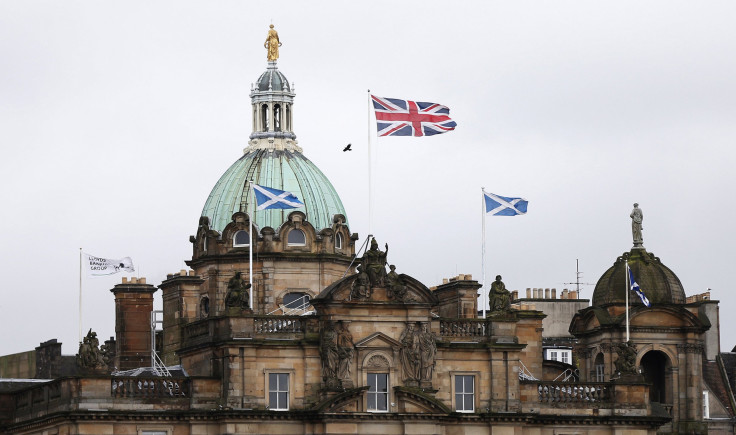How Scottish Independence Would Affect Financial Markets

With just nine days to go before the vote on Scottish independence, major global investors are withdrawing billions of pounds from the U.K. economy over fears Scotland may vote “yes” to becoming an independent country. The capital outflow has been as high as 12 billion pounds ($20 billion) from the country so far this year, according to figures from Societe Generale SA (EPA:GLE), which has raised concerns over how international markets could react once Scotland votes Sept. 18.
When Scotland goes to the polls its population will answer "yes" or "no" to the question: "Should Scotland be an independent country?" Polls are trending toward “yes” after more than two years of "no" dominance, but now the vote balances, observers say, on uncertainty about what arrangement Scotland would have regarding its currency -- whether it would keep the British pound, adopt the euro or go a third route.
“It would still be a cold shower for many investors if Scotland voted for independence,” UBS economist Reinhard Cluse in London said. “I think the biggest issue is what happens to investors' risk appetite, and I think a 'yes' could lead to pull back in that appetite and put pressure on equity,” or drive down stock markets.
If Scotland chooses to abandon its sovereign debt -- the portion of the British public debt it is expected to take with it if it becomes independent -- it will fall to the remaining parts of the U.K. to service it. That could “arguably increase the uncertainty of the credit quality of the gilts market in the U.K.,” Cluse said. In other words, bonds issued by the British government or gilts, which [are] considered low-risk, would be seen as more risky, because the government issuing them would be more indebted. This, according to a Sept. 8 UBS report that Cluse co-wrote, is “a costless threat at the moment because Scotland has no bonds.”
During live debates between the Alex Salmond, leader of the Scottish Nationalist Party, and Alistair Darling, leader of the pro-U.K. campaign, the issue of currency has been one that has deeply divided voters, with the unionists claiming Scotland couldn't use the pound and the separatists saying it can. After months of speculation Darling admitted Scotland couldn't be stopped from keeping the pound, but it would have to accept whatever interest rate the Bank of England decides to set. The dangers of having a fiscal union without the political element were outlined by Nobel Prize-winning economist Paul Krugman in a New York Times opinion piece Sunday, in which he said, “If Scottish voters really believe that it’s safe to become a country without a currency, they have been badly misled.”
The effect on the pound clearly has been visible. The British currency fell 1.3 percent against the dollar Monday to $1.611 and also fell 1 percent against the euro to 1.2488 euros, a 10-month low.
An independent Scotland also may become a large producer of the world's most indispensable commodity, oil. Should Scotland wrest control of oil produced in the North Sea from the U.K., its North Sea oil reserves would be huge. At current prices they are estimated to be worth 60 billion pounds ($90 billion) to 1.5 trillion pounds ($2.2 trillion).
But, Cluse said, while Scottish independence "would be quite a big event on a global scale" for the oil market, it would not move oil prices as much as "what’s happening in Russia, Ukraine and [the] Middle East." But the overall issue, according to the UBS report, is far more nuanced than simply the country voting “yes” or “no.” In the event of a narrow “no” vote, the report says, the markets could react in the same way as a “yes” because of the likelihood Scotland will be granted broader powers by London and the possibility of a future referendum.
“This might be years away,” Cluse said. “But the point is, this is not just about 'yes' or 'no.' The outcome of a narrow 'no' will not end the discussion, but actually start a much wider discussion on many things that could continue to impact the market for years to come.”
© Copyright IBTimes 2024. All rights reserved.






















